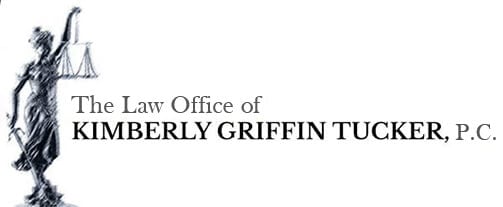Is An Old Criminal Record Getting In The Way Of Your Goals?
Your criminal record can significantly impact employment opportunities, housing opportunities and many other opportunities. Unless you follow specific procedures to ensure the privacy of your record, the public may have access to information about prior arrests, charges and criminal proceedings — even if you weren’t convicted.
The Law Office of Kimberly Griffin Tucker, P.C., in Dallas, Texas, assists eligible clients through the process of expunction (also known as expungement) or an order of nondisclosure. Both processes can be invaluable to your future.
Criminal records have a way of cau
Why Irrelevant Criminal Records Do Not Go Away On Their Own
sing lasting damage, even if your case was dismissed or you were found not guilty. This is because records relating to an arrest or even a criminal charge are created at the time of arrest and forwarded to the Texas Department of Public Safety. They in turn maintain a database called “TCIC.” TCIC tracks arrests and dispositions of cases that follow an arrest and reports this information to the national criminal information system called “NCIC.”
In addition to TCIC and NCIC, many county and district clerks’ offices maintain local computerized databases which contain records of arrests and case dispositions. Clearing this mountain of duplicated records can be tricky unless you have the help of a good attorney. That’s why you should call Kimberly Griffin Tucker.
Answers To Common Questions About Expunction
This can be a difficult process to understand, especially if the concept is new to you. Keep reading for answers to some of the more common questions attorneys receive.
Who Is Eligible For An Expunction?
Cases that resulted in dismissals, declines or “not guilty” verdicts. Class “C” deferred dispositions are also expunction eligible.
How Do I Know If I Am Eligible?
If you think your criminal history contains past allegations that are suitable for expunction, call Kimberly Griffin Tucker. She will be happy to evaluate your case for a nominal fee.
How Long Does This Process Take?
The expunction process usually takes a few months from start to finish, which means the system is not very responsive to individuals needing a quick fix or cleanup of their arrest record. However, the effect of a properly completed expunction is well worth the wait.
What Is The End Result?
Following entry of an expunction order, the release, dissemination or use of the expunged records and files for any purpose is prohibited. The petitioner may deny the occurrence of the arrest and the existence of the expunction order.
However, when questioned under oath in a criminal proceeding about an arrest for which the records have been expunged, the petitioner is permitted to state only that the matter in question has been expunged.
What Happens If Someone Violates The Expunction Order?
A person who learns of an arrest while an officer of a listed agency and who knows of an order expunging the records and files relating to that arrest is guilty of an offense if he knowingly releases or uses the records or files.
Further, a person who knowingly fails to return or to obliterate identifying portions of a record or file ordered expunged is also guilty of an offense. Violating an expunction order is a Class B misdemeanor.
Contact The Firm To Learn More
Based in Dallas, The Law Office of Kimberly Griffin Tucker, P.C., serves clients throughout Northeast Texas including Collin, Dallas and Denton counties. To learn more about how Mrs. Tucker can help you clear your criminal record, call 972-833-8246 or send Kimberly an email.
